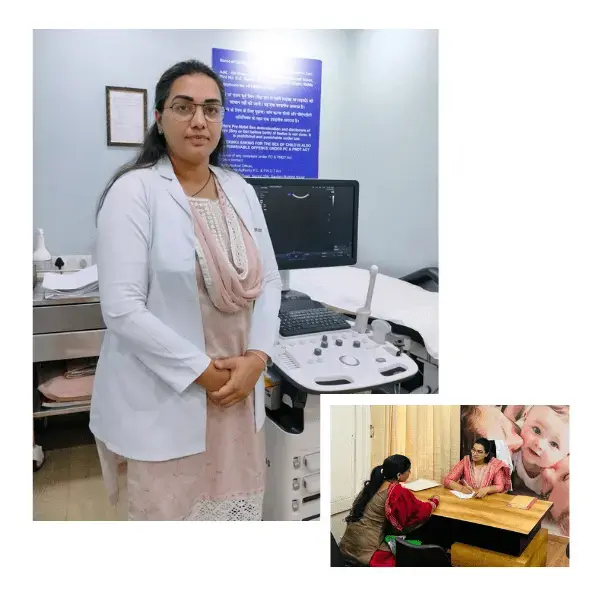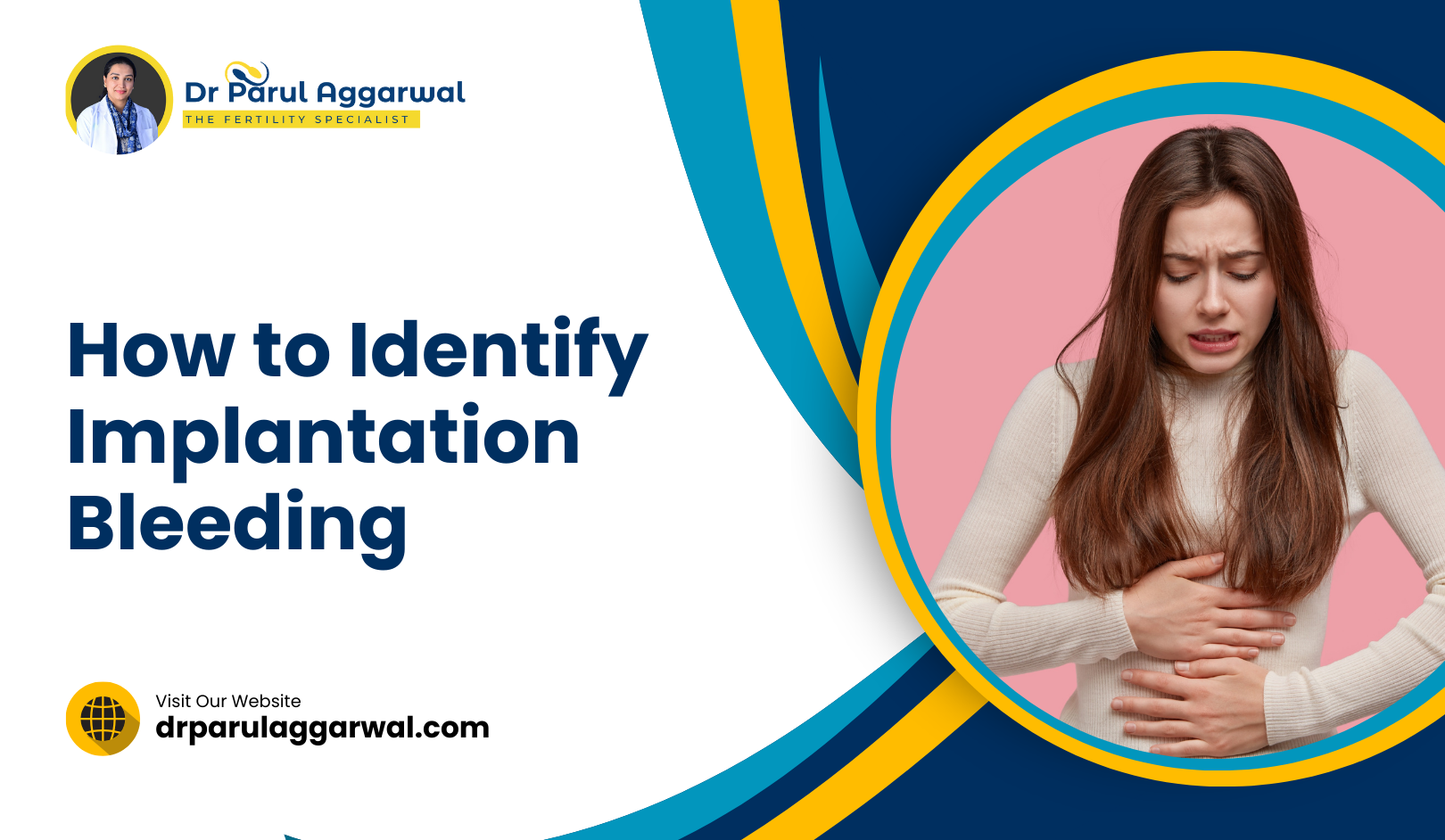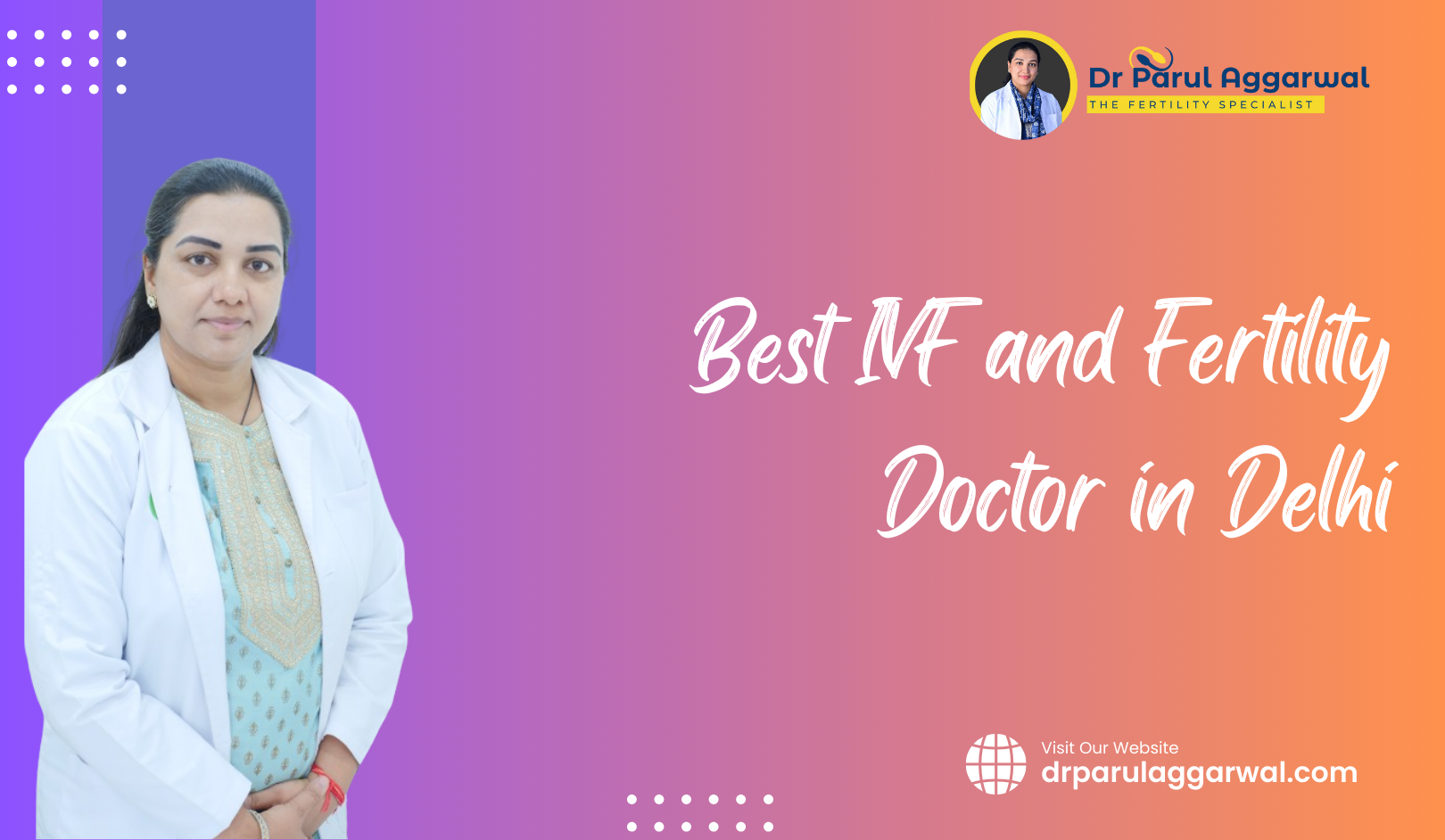

Dr Parul Aggarwal: Best Fertility Specialist in India
Over 10,000+ happy parents have placed their trust in Dr. Parul Aggarwal expertise to realize their parenthood dreams. With more than 25+ years of unwavering commitment to fertility, she stands out as a globally acclaimed infertility specialist and a pioneer in IVF treatment in Noida. Her recognition as one of the best IVF doctors in Noida underscores her exceptional skill and dedication to helping couples achieve successful outcomes. Dr. Parul approach combines advanced reproductive technologies with compassionate care, making her a beacon of hope for many seeking fertility solutions.
Consult NowBest Infertility Treatment in Noida

Fertility Testing
Assess your reproductive health with thorough fertility testing

Genetic Testing
Genetic testing reveals inherited conditions, guiding treatment choices.

Infertility Treatment
Unlock comprehensive solutions to overcome infertility and realize your dreams of parenthood.

Fertility Preservation
Secure your fertility for the future with cutting-edge preservation techniques.
We are here to acheive your parenthood dreams
Advanced Technology and Expertise
Benefit from advanced reproductive technology and a team of highly experienced specialists dedicated to your success.
Comprehensive Care and Support
Receive tailored treatment plans and holistic support, including emotional counseling and nutritional guidance, throughout your journey.
High Success Rates & Satisfaction
Join our many satisfied patients who have successfully achieved their parenthood dreams thanks to our high success rates and compassionate care.

Our Specialities
Our IVF and fertility services are designed with a focus on personalized care, advanced technology, and a compassionate approach to help you achieve your dream of parenthood.
Globally Recognized Fertility Experts in India

Publication
Member
Speaker






Dr. Parul Changed Our Lives: Real Stories from Patients
Book an AppointmentOur Success Story



Find Best Fertility Clinics Near You

Ferty Nest Noida
Block- 3F, Peacock Court, 21 S, Wave City Center, Sector 32, Noida, Uttar Pradesh 201301

Ferty Nest Karnal
1541, Main Road, Urban Estate, Sector 13, Karnal, Haryana 132001

Ferty Nest Delhi
World infertility & IVF centre , Building NO 13, 2 nd floor, Main Ring Road, Lajpat Nagar 4, New Delhi
Latest blog
Learn some new info from
our latest news
How to Identify Implantation Bleeding : Causes, Symptoms
One of the earliest signs of pregnancy that can be confusing for many women is implantation bleeding. This subtle yet significant event occurs when a fertilized egg attaches itself to the lining of the uterus, marking the first step in pregnancy. However, because implantation bleeding can resemble light spotting or a menstrual period, it often leaves women wondering whether it is an early sign of pregnancy or just a regular period. In this article, we’ll help you understand how to identify implantation bleeding, the causes behind it, common symptoms, and what to expect if you experience it. As a fertility specialist, Dr. Parul Aggarwal offers insights to guide you through this exciting but sometimes confusing stage of early pregnancy. What is Implantation Bleeding? Implantation bleeding happens when the fertilized egg, or embryo, travels through the fallopian tube and implants itself into the uterine lining. This occurs around 6 to 12 days after ovulation and fertilization. As the embryo burrows into the uterus, it may cause slight damage to the blood vessels in the uterine lining, resulting in light bleeding or spotting. Implantation bleeding is considered one of the earliest signs of pregnancy and often occurs around the time when you might expect your next menstrual period. This can lead to confusion for women who may mistake it for a lighter-than-usual period. Causes of Implantation Bleeding Implantation bleeding occurs as a natural part of the early pregnancy process. Here’s what happens: Fertilization: After ovulation, sperm meets the egg in the fallopian tube, leading to fertilization. Embryo Development: The fertilized egg begins to divide and grow, forming a blastocyst. Travel to the Uterus: The blastocyst travels through the fallopian tube to reach the uterus. Implantation: The blastocyst attaches to the uterine wall, causing a slight disruption to the blood vessels, which may result in light bleeding. It’s important to note that implantation bleeding is harmless and a completely normal part of early pregnancy. However, not all women experience implantation bleeding, and its absence doesn’t mean you’re not pregnant. Symptoms of Implantation Bleeding To help you identify whether the bleeding you’re experiencing is due to implantation, here are some common symptoms: 1. Timing of the Bleeding Implantation bleeding usually occurs around 6 to 12 days after ovulation, or about a week before your expected period. If you’re experiencing light spotting at this time and you’ve had unprotected intercourse, there’s a chance it could be implantation bleeding. 2. Light Spotting Unlike a menstrual period, which typically starts light and becomes heavier, implantation bleeding is usually very light. It often appears as a few drops of blood or light spotting. It’s typically pink, light red, or brown in color, rather than the bright red blood seen during a period. 3. Short Duration Implantation bleeding typically lasts anywhere from a few hours to 2 days. In contrast, a menstrual period can last 3 to 7 days. If the bleeding stops quickly, it’s more likely to be implantation bleeding than a period. 4. No Clotting While some women experience clotting during their period, implantation bleeding does not usually involve blood clots. It’s more of a light, steady spotting. 5. Mild Cramping Some women experience mild cramping during implantation bleeding, though it’s typically lighter than menstrual cramps. If you feel a slight discomfort around the time of spotting, it could be due to the embryo attaching to the uterine lining. 6. No Accompanying PMS Symptoms Menstrual periods are often accompanied by premenstrual symptoms such as bloating, breast tenderness, fatigue, and mood swings. Implantation bleeding, on the other hand, is usually not associated with these symptoms, or they are much milder. How to Differentiate Between Implantation Bleeding and a Period Because implantation bleeding can occur around the time of your period, it’s essential to know the differences between the two: Implantation Bleeding Menstrual Period Light spotting or pink/brown discharge Typically heavier, with bright red blood Lasts a few hours to 2 days Lasts 3 to 7 days No clots present Clots may be present Occurs 6 to 12 days after ovulation Occurs 14 days after ovulation Accompanied by mild cramping (if any) May involve moderate to severe cramps No typical PMS symptoms May involve bloating, mood swings, fatigue, etc. If you’re unsure whether the bleeding is implantation bleeding or your period, consider other early signs of pregnancy, such as nausea, fatigue, and breast tenderness. A home pregnancy test can provide clarity, but it’s best to wait at least a few days after the bleeding stops to take it, as implantation bleeding occurs before hCG levels (pregnancy hormone) are detectable. What Should You Do If You Experience Implantation Bleeding? If you suspect you’re experiencing implantation bleeding, it’s important to: Track the Timing: Note when the spotting occurs and how long it lasts. Compare this to your usual menstrual cycle. Monitor Symptoms: Pay attention to any early pregnancy symptoms, such as nausea, fatigue, or tender breasts. Take a Pregnancy Test: Wait a few days after the bleeding stops before taking a home pregnancy test. It’s best to take the test at least a day or two after your missed period for the most accurate result. If you receive a positive pregnancy test result or have any concerns about your bleeding, it’s a good idea to consult your doctor for further guidance. When to Seek Medical Advice Although implantation bleeding is generally harmless, it’s essential to know when to seek medical advice. If the bleeding becomes heavy, lasts longer than a few days, or is accompanied by severe cramping, you should consult your healthcare provider. Heavy bleeding could be a sign of other conditions, such as miscarriage or an ectopic pregnancy, which require medical attention. Conclusion: Understanding Implantation Bleeding with Dr. Parul Aggarwal Implantation bleeding is an exciting early sign of pregnancy that occurs when a fertilized egg attaches to the uterine lining. While it’s easy to confuse this light spotting with a menstrual period, paying attention to the timing, color, and amount of bleeding can help you identify it as implantation bleeding. Dr. Parul Aggarwal and her team are dedicated to helping women understand every aspect of their fertility journey, from early pregnancy signs to fertility treatments. If you have questions about implantation bleeding, fertility, or pregnancy, don’t hesitate to contact Dr Parul for expert advice and compassionate care. Let us support you every step of the way on your journey to parenthood.
Best IVF and Fertility Doctor in Delhi
The journey to parenthood can sometimes be filled with challenges and uncertainty. For couples struggling with infertility, the road to having a child can seem long and overwhelming. However, with advancements in fertility treatments like In Vitro Fertilization (IVF), the dream of becoming parents is more attainable than ever. In Delhi, one name stands out for delivering exceptional fertility care: Dr. Parul Aggarwal. As a highly regarded IVF specialist and fertility doctor in Delhi, Dr. Aggarwal has helped countless couples overcome infertility and achieve their dreams of parenthood. In this article, we’ll explore why Dr. Parul Aggarwal is considered the best fertility doctor in Delhi and how her clinic offers state-of-the-art treatments, personalized care, and a compassionate approach that sets it apart as the leading IVF center in the city. Why Dr. Parul Aggarwal is the Best Fertility Doctor in Delhi 1. Expertise and Experience Dr. Parul Aggarwal brings years of expertise in reproductive medicine and fertility treatments. With specialized training in IVF and fertility treatments, she has successfully treated complex cases of infertility, providing hope to couples who have previously faced multiple failures. Her patient-first approach and in-depth understanding of fertility science make her one of the most trusted fertility doctors in Delhi. What Sets Dr. Parul Aggarwal Apart: Years of experience in fertility treatment, with a focus on IVF. Expertise in handling difficult cases such as male infertility, advanced maternal age, and unexplained infertility. A commitment to staying updated with the latest advancements in fertility treatments. 2. Patient-Centric Care What truly makes Dr. Parul Aggarwal stand out is her compassionate and patient-centric approach. Infertility can be an emotionally draining experience, and Dr. Aggarwal understands the importance of offering emotional support alongside medical treatment. She ensures that every patient feels heard, understood, and supported throughout their fertility journey. Why Patients Love Dr. Parul Aggarwal: She takes the time to explain every step of the fertility process clearly. Offers personalized treatment plans tailored to each patient’s unique needs. Provides emotional support and counseling to help patients cope with the challenges of infertility. 3. Comprehensive Fertility Solutions Dr. Parul Aggarwal’s clinic offers a comprehensive range of fertility treatments under one roof, making it the best IVF clinic in Delhi. Whether you need basic fertility evaluations or advanced IVF treatments, you can trust that you will receive the best care and technology available. Fertility Services Offered: In Vitro Fertilization (IVF): The clinic specializes in IVF, using the latest technology to ensure high success rates. Intrauterine Insemination (IUI): A less invasive option, often used for couples with mild infertility issues. Intracytoplasmic Sperm Injection (ICSI): A specialized IVF technique used for male infertility. Egg and Sperm Donation Programs: Ideal for couples who cannot conceive using their own eggs or sperm. Surrogacy: Offering compassionate surrogacy services for those unable to carry a pregnancy to term. Fertility Preservation: Options for egg, sperm, and embryo freezing for future use. Preimplantation Genetic Testing (PGT): Screening embryos for genetic abnormalities to ensure a healthy pregnancy. Advanced Technology for Higher Success Rates At Dr. Parul Aggarwal’s clinic, success in fertility treatments is driven by cutting-edge technology and the highest standards of care. From diagnosis to embryo transfer, every step is handled with precision using the latest tools and equipment. Advanced Technologies Include: Blastocyst Culture: Growing embryos to the blastocyst stage before transfer to improve the chances of implantation. Time-Lapse Imaging: Continuous monitoring of embryos to select the best ones for transfer. Laser-Assisted Hatching: Helping embryos implant more easily by thinning the outer shell of the embryo. Cryopreservation: Freezing eggs, sperm, and embryos for future use, with high survival rates. The clinic’s commitment to using advanced technology combined with personalized care ensures that patients have the best possible chance of a successful pregnancy. Success Stories: Real-Life Testimonials Dr. Parul Aggarwal has been instrumental in helping many couples fulfill their dreams of parenthood. Her clinic’s high success rates and patient satisfaction make it the top choice for fertility treatments in Delhi. Testimonial 1: "After trying for years and facing multiple failures, we were on the verge of losing hope. Dr. Parul Aggarwal guided us through the IVF process with such care and compassion. Thanks to her expertise, we are now proud parents of a healthy baby boy. We will always be grateful!" – Richa & Karan Testimonial 2: "Dr. Parul Aggarwal and her team were incredibly supportive throughout our fertility journey. After a failed IVF cycle at another clinic, we came to Dr. Aggarwal, and with her guidance, we finally conceived. Her clinic offers world-class technology with a personal touch. We couldn’t be happier." – Aarti & Amit Why Choose Dr. Parul Aggarwal’s IVF Clinic? Personalized Approach: Every patient’s fertility journey is different, and Dr. Parul Aggarwal ensures that each treatment plan is customized to suit individual needs and conditions. Comprehensive Care: From fertility diagnosis to advanced treatments like IVF and ICSI, all services are available under one roof. Compassionate Support: Emotional well-being is just as important as physical treatment, and Dr. Aggarwal offers counseling and support to help patients through the emotional aspects of infertility. High Success Rates: With the latest technology and personalized care, Dr. Parul Aggarwal’s clinic consistently achieves high success rates in IVF and fertility treatments. Transparent Pricing: At Dr. Parul Aggarwal’s clinic, you receive transparent and affordable pricing with no hidden costs. Every patient is informed about the costs involved, helping them make informed decisions about their treatment. Frequently Asked Questions (FAQs) 1. How do I know if IVF is the right option for me? IVF is recommended for couples facing certain fertility challenges, such as blocked fallopian tubes, severe male infertility, or unexplained infertility. After a thorough consultation and diagnostic tests, Dr. Parul Aggarwal will advise whether IVF is the best course of action for your case. 2. What is the success rate of IVF at Dr. Parul Aggarwal’s clinic? The success rates vary based on several factors, including the patient’s age and fertility condition. However, with advanced technology and personalized care, the clinic consistently achieves high success rates. 3. Is fertility treatment covered by insurance? It depends on your insurance provider. While some policies may cover parts of fertility treatments, it’s essential to check with your insurance company. The clinic also offers flexible payment options for patients. 4. How long does an IVF cycle take? An IVF cycle typically takes 4-6 weeks from ovarian stimulation to embryo transfer. The timeline may vary depending on the individual’s response to the treatment. Conclusion Choosing the right fertility doctor is a crucial step in your journey toward parenthood. Dr. Parul Aggarwal, with her expertise, personalized care, and state-of-the-art technology, has earned a reputation as the best fertility doctor in Delhi. Her clinic offers a comprehensive range of fertility treatments, from IVF and IUI to advanced genetic testing and fertility preservation. With high success rates, compassionate care, and a patient-first approach, Dr. Parul Aggarwal’s IVF clinic is the top choice for couples facing infertility challenges. If you’re struggling with infertility and looking for expert guidance, contact Dr. Parul Aggarwal today. Let us help you turn your dream of parenthood into reality.
The Role of Nutrition in Boosting Fertility
Fertility is a sensitive and complex subject for many individuals and couples who dream of building a family. While medical advancements like in vitro fertilization (IVF) have made significant strides in helping people conceive, the importance of lifestyle and nutrition cannot be underestimated. Fertility is influenced by numerous factors, including genetics, age, and overall health, but what we eat also plays a pivotal role. A well-balanced diet, rich in essential nutrients, can enhance fertility and increase the chances of conception. In this article, Dr. Parul Aggarwal, one of the best IVF specialists in Noida, explores the critical role of nutrition in boosting fertility, the nutrients that matter most, and how diet can support both natural conception and assisted reproductive techniques like IVF. Dr. Aggarwal’s years of experience in helping couples overcome infertility make her an authority in this domain, offering insight into how a simple change in diet can improve fertility outcomes. Why Nutrition is Essential for Fertility When couples try to conceive, they often focus on fertility treatments without realizing that lifestyle factors, particularly diet, can significantly impact their reproductive health. Nutrition influences several bodily functions, including hormone production, egg quality, sperm health, and overall reproductive system function. A poor diet can lead to nutrient deficiencies, inflammation, hormonal imbalances, and oxidative stress, all of which can impair fertility. Here are some key reasons why nutrition is crucial for fertility: Hormonal Balance Nutrients play a fundamental role in regulating hormones. For instance, essential fatty acids, like omega-3, help in the production of hormones that regulate ovulation and support pregnancy. An imbalanced diet can disrupt the delicate hormonal balance necessary for conception. Improved Egg and Sperm Quality The quality of eggs and sperm is critical for fertilization and implantation. A nutrient-rich diet provides antioxidants that protect reproductive cells from damage caused by oxidative stress. Vitamin C, vitamin E, and selenium, for example, are known to protect sperm and egg cells from free radical damage. Healthy Reproductive Environment The uterus and reproductive organs need the right nutrients to create a healthy environment for conception and pregnancy. A diet rich in vitamins, minerals, and antioxidants can improve uterine health, making implantation more likely. Reduced Inflammation Chronic inflammation is known to impact fertility negatively. Nutrients such as omega-3 fatty acids, found in fish and flaxseeds, can help reduce inflammation and improve reproductive health. Maintaining a Healthy Weight Being underweight or overweight can lead to fertility problems. Nutrition plays a vital role in maintaining a healthy weight, which is crucial for fertility. Obesity can lead to conditions like polycystic ovary syndrome (PCOS), which affects ovulation, while being underweight can result in hormone imbalances that disrupt menstrual cycles. Key Nutrients That Boost Fertility To optimize fertility, it’s important to focus on a diet that includes specific nutrients known to support reproductive health. Below are some essential nutrients that play a key role in boosting fertility: Folic Acid (Vitamin B9) Folic acid is one of the most well-known fertility-boosting nutrients, especially for women. It is essential for cell division and DNA synthesis, making it crucial for the development of the embryo. It also helps prevent neural tube defects in the early stages of pregnancy. Sources: Leafy green vegetables, beans, lentils, and fortified cereals. Iron Iron is essential for the production of hemoglobin and maintaining healthy blood flow to the reproductive organs. Iron deficiency can lead to anemia, which has been linked to infertility in women. Sources: Red meat, spinach, beans, and fortified grains. Zinc Zinc is vital for both male and female fertility. In men, it plays a crucial role in sperm production, while in women, it helps regulate hormone levels and supports healthy egg production. Sources: Meat, shellfish, legumes, and seeds. Vitamin C A powerful antioxidant, vitamin C improves the quality of both sperm and eggs by protecting them from oxidative stress. It also supports immune function and helps the body absorb iron. Sources: Citrus fruits, strawberries, bell peppers, and broccoli. Vitamin D Vitamin D deficiency has been linked to infertility in both men and women. This vitamin is critical for hormone regulation and reproductive health. In men, it improves sperm motility, and in women, it supports the health of the uterus. Sources: Sunlight, fortified milk, fish, and eggs. Omega-3 Fatty Acids Omega-3s help reduce inflammation, regulate hormone production, and improve blood flow to the reproductive organs. They are also essential for the development of the fetal brain and nervous system. Sources: Fatty fish (such as salmon and sardines), flaxseeds, and walnuts. Selenium Selenium is another antioxidant that helps protect reproductive cells from oxidative damage. It also plays a role in regulating thyroid function, which is crucial for maintaining hormonal balance. Sources: Brazil nuts, fish, and whole grains. Coenzyme Q10 (CoQ10) CoQ10 is known for its ability to improve egg and sperm quality. As we age, our body’s production of CoQ10 decreases, and supplementing it may help older individuals improve their fertility outcomes. Sources: Meat, poultry, fish, and nuts. Protein High-quality protein is important for overall health, including fertility. It provides the building blocks for cell growth and repair. Plant-based proteins (like beans and lentils) and lean animal proteins (like chicken and fish) are recommended for boosting fertility. Sources: Meat, fish, eggs, beans, and tofu. Magnesium Magnesium is involved in hundreds of biochemical reactions in the body, including those related to fertility. It helps regulate hormones, supports the production of progesterone, and improves blood flow to the uterus. Sources: Leafy greens, nuts, seeds, and whole grains. Fertility-Boosting Foods to Incorporate in Your Diet In addition to focusing on key nutrients, it’s important to consume whole, nutrient-dense foods that support overall reproductive health. Below are some fertility-boosting foods that should be part of your daily diet: Leafy Greens: Spinach, kale, and Swiss chard are rich in folic acid, iron, and magnesium. Fatty Fish: Salmon, sardines, and mackerel are great sources of omega-3 fatty acids. Berries: Blueberries, strawberries, and raspberries are loaded with antioxidants that protect reproductive cells. Whole Grains: Quinoa, oats, and brown rice provide complex carbohydrates and fiber that support hormonal balance. Nuts and Seeds: Almonds, walnuts, flaxseeds, and chia seeds are packed with healthy fats and antioxidants. Avocado: Rich in healthy fats, avocados support hormone production and improve egg quality. Lean Protein: Chicken, turkey, and legumes provide the amino acids necessary for cell growth and repair. Eggs: A rich source of protein and vitamin D, eggs are essential for reproductive health. Beans and Lentils: Packed with protein and iron, beans and lentils are excellent plant-based options for fertility. The Role of Nutrition in Assisted Reproductive Techniques While nutrition is essential for natural conception, it also plays a significant role in assisted reproductive techniques like IVF. Studies have shown that couples who adhere to a healthy, nutrient-rich diet before and during IVF treatment have higher success rates. How Nutrition Impacts IVF Success: Improved Egg Quality: A diet rich in antioxidants and healthy fats can improve the quality of eggs, which is critical for the success of IVF. Healthy Uterine Lining: Proper nutrition helps in developing a healthy endometrial lining, which is necessary for embryo implantation. Sperm Health: In men, a balanced diet improves sperm count, motility, and morphology, increasing the chances of fertilization. Hormonal Balance: A nutrient-dense diet helps regulate hormones, ensuring that the IVF cycle progresses smoothly. At Ferty Nest, under the expert guidance of Dr. Parul Aggarwal, we recommend personalized dietary plans to support our patients through the IVF process. A combination of fertility treatments and proper nutrition greatly enhances the likelihood of a successful pregnancy. FAQs on Nutrition and Fertility 1. How long should I follow a fertility diet before trying to conceive? It’s recommended to start a fertility-friendly diet at least three to six months before trying to conceive. This allows the body to replenish nutrient stores and optimize reproductive health. 2. Can a plant-based diet support fertility? Yes, a plant-based diet rich in whole foods, healthy fats, and protein can support fertility. However, it’s essential to ensure that you’re getting adequate amounts of nutrients like vitamin B12, iron, and omega-3 fatty acids, which are often lower in plant-based diets. 3. Are there any foods I should avoid while trying to conceive? It’s best to avoid processed foods, trans fats, excessive sugar, and alcohol, as these can negatively impact fertility. High-mercury fish like swordfish and king mackerel should also be limited due to their potential to harm reproductive health. 4. Does caffeine affect fertility? While moderate caffeine intake (one cup of coffee per day) is generally considered safe, excessive caffeine consumption has been linked to reduced fertility and increased risk of miscarriage. 5. How important is hydration for fertility? Staying hydrated is essential for overall health, including reproductive health. Adequate hydration helps maintain healthy cervical mucus, which is important for sperm to reach the egg during conception. 6. Can taking supplements improve fertility? While whole foods should be your primary source of nutrients, supplements can help fill in the gaps. Consult with your healthcare provider or fertility specialist before starting any supplements to ensure they are right for you. 7. Should men also follow a fertility diet? Yes, male fertility is equally influenced by diet. A nutrient-rich diet can improve sperm quality, motility, and count, increasing the chances of conception. 8. How does being overweight or underweight affect fertility? Both obesity and being underweight can lead to hormonal imbalances and irregular menstrual cycles, which can impact fertility. Maintaining a healthy weight through balanced nutrition is essential for reproductive health. Conclusion: The Power of Nutrition in Fertility Nutrition plays a critical role in boosting fertility and increasing the chances of a healthy pregnancy. By making informed food choices, individuals and couples can improve reproductive health, regulate hormones, and create the optimal conditions for conception. Whether you’re trying to conceive naturally or undergoing IVF, a nutrient-rich diet is a powerful tool in supporting your fertility journey. At Ferty Nest, under the expert care of Dr. Parul Aggarwal, the best IVF specialist in Noida, we provide comprehensive fertility treatment plans that include personalized dietary guidance. If you’re struggling with infertility, contact us today to learn how we can help you on your path to parenthood.













